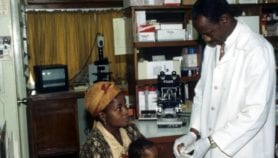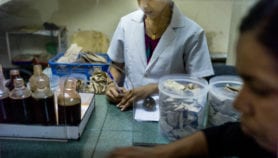By: Jon Cohen
Send to a friend
The details you provide on this page will not be used to send unsolicited email, and will not be sold to a 3rd party. See privacy policy.
Scientists seeking funding for research on the best way to deliver AIDS therapies in developing countries are finding themselves short of funds because institutes such as the US National Institutes of Health (NIH) are refusing to pay for anti-HIV drugs for such trials.
A draft policy issued by the NIH states that the cost of purchasing drugs for clinical trials would be so great that it “would severely restrict the institute’s research capacity”. Furthermore, the document argues that it would be unethical to stop treatment when a trial ends.
In this article, Jon Cohen explores the arguments for and against such an approach. Some feel that those who carry out clinical trials should be obliged to continue providing drugs after the study ends. Others argue that in practice, imposing this obligation stifles research and would be to the detriment of those most at need in developing countries.
Link to full Science article
Reference: Science 300, 1212 (2003)













